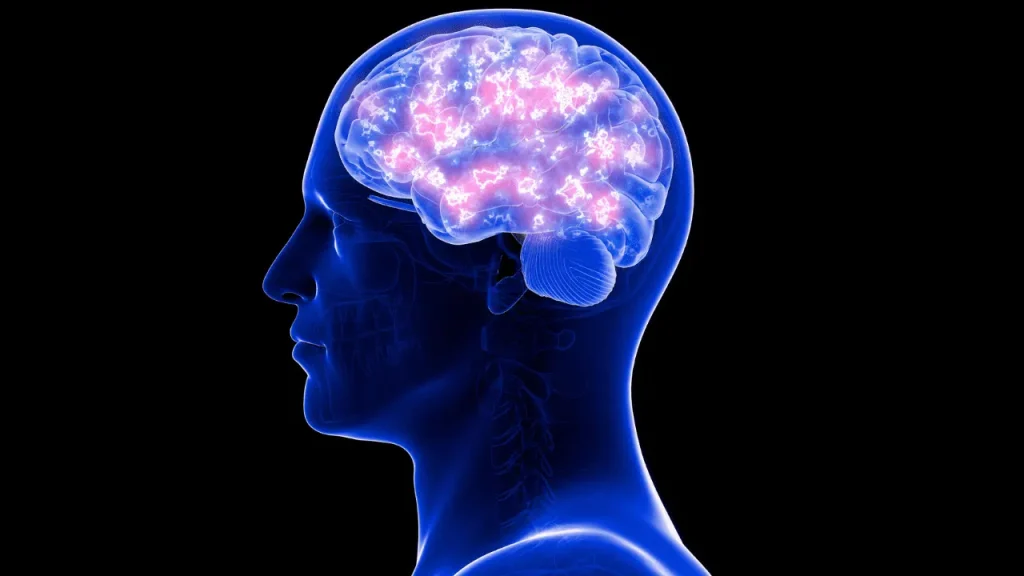
Are Benzodiazepines Addictive? Navigating the Risks and Embracing Natural Alternatives for Tranquility:
Benzodiazepines are commonly prescribed medications aimed at addressing the challenges of anxiety and insomnia, making them the go-to solutions for healthcare professionals dealing with these prevalent mental health issues. The effectiveness of benzodiazepines in managing symptoms has positioned them as reliable options in the toolbox of mental health interventions. However, the very efficacy that has made them popular raises concerns about potential dependence and addiction.
These medications play a significant role in addressing the immediate and acute symptoms of a wide variety of anxiety and sleep disorders. They are frequently utilized by healthcare professionals to alleviate symptoms swiftly and improve the overall well-being of individuals dealing with these specific conditions. Yet, despite their effectiveness, many are prescribed with the intention of being a short-term or temporary solution for ailments.
Understanding the landscape of benzodiazepines necessitates a journey into their mechanisms of action. These medications operate by enhancing the effects of a neurotransmitter called gamma-aminobutyric acid (GABA), inducing a calming effect on the central nervous system. This modulation of neurotransmitters forms the basis of their therapeutic benefits, but it also raises concerns about the potential for misuse and dependence.
As we navigate through the intricate web of benzodiazepines, it is paramount to discern the fine line between therapeutic use and the risks associated with prolonged or improper consumption. This article aims to unravel the multifaceted nature of benzodiazepine addiction, bringing to light the scientific intricacies that underscore the development of dependence.
In the subsequent sections, we will delve into the addictive potential of benzodiazepines, explore the side effects and challenges of withdrawal, scrutinize natural alternatives for tranquility, and introduce Levium Capsules as a holistic supplemental alternative, emphasizing informed decision-making in the pursuit of mental well-being.
You May Also Like:
Are benzodiazepines addictive: How they work
To grasp the nature of benzodiazepines, it’s crucial to understand how they work and why doctors prescribe them. These medications, like alprazolam and diazepam, influence a brain chemical known as gamma-aminobutyric acid, or GABA for short, which helps calm things down in our nervous system.
GABA is like the brain’s brake pedal, slowing down nerve activity. Benzodiazepines act as boosters for GABA, enhancing its calming effect; they latch onto specific receptors, promoting relaxation, reducing anxiety, and calming muscles. This collaborative effort with GABA reinstates a balance in brain activity, making benzodiazepines effective for conditions like anxiety disorders and sleep disturbances. In essence, benzodiazepines work in tandem with GABA to provide relief from disruptive symptoms.
While these medications can indeed provide relief, it’s essential to consider certain factors before initiating their use. Prolonged usage may lead to tolerance, where the body becomes accustomed to the medication, necessitating higher doses for the same therapeutic effect. Additionally, there exists a risk of developing dependence, meaning that an abrupt cessation of these medications can trigger withdrawal symptoms.

Are benzodiazepines addictive: Considerations
Addressing the addictive proclivity of benzodiazepines requires a meticulous examination of their pharmacological effects. These medications, designed to alleviate symptoms of anxiety and insomnia, operate by enhancing the inhibitory neurotransmitter gamma-aminobutyric acid (GABA) within the central nervous system. While this augmentation induces a calming effect, it concurrently introduces a potential for habituation.
Regular and prolonged use of benzodiazepines may lead to tolerance, where the body becomes accustomed to their presence, leading to diminishing therapeutic effects. This phenomenon prompts individuals to increase their dosage to achieve the desired outcomes, inadvertently fostering a pattern of dependence.
The propensity for dependence raises concerns regarding the potential for addiction. Abrupt discontinuation or a substantial reduction in dosage can trigger withdrawal symptoms, ranging from heightened anxiety to sleep disturbances. The manifestation of these symptoms underscores the physiological reliance that can develop with benzodiazepine use.
Moreover, the habit-forming nature of benzodiazepines is highlighted by the reinforcing effects they produce. Individuals may find temporary relief from stress and anxiety upon consumption, creating a psychological association between the medication and a sense of tranquility. This psychological reinforcement contributes to prolonged usage, potentially intensifying the risk of dependence.
Understanding the intricacies of benzodiazepine addiction necessitates acknowledging the interplay between physiological adaptation, psychological reinforcement, and the associated risks of dependence. This comprehension is vital for individuals, healthcare providers, and policymakers alike, as it forms the basis for informed decision-making surrounding benzodiazepine use and exploring alternative approaches to promote mental well-being.

Are benzodiazepines addictive: Side effects and withdrawal
A full and complete understanding of benzodiazepines involves scrutinizing their side effects and the intricate dynamics of withdrawal. While these medications can offer relief from anxiety and insomnia, they are not without potential drawbacks.
Side effects associated with benzodiazepine use encompass an array of unpleasant symptoms. Common occurrences include drowsiness, dizziness, and blurred vision, which, while often temporary, can impact an individual’s daily functioning. Additionally, cognitive effects such as confusion and memory impairment, particularly prominent in prolonged usage and older individuals, underscore the need for a judicious approach to prescribing.
Of significant concern is the potential for withdrawal symptoms upon discontinuation or dosage reduction. Benzodiazepine withdrawal is a complex process, often characterized by rebound anxiety, insomnia, and heightened physiological arousal. Severe cases may involve seizures, necessitating a gradual tapering approach under the guidance of healthcare professionals to mitigate these risks.
The duration and intensity of withdrawal symptoms depend on various factors, including the specific benzodiazepine used, duration of use, and individual variability. Short-acting benzodiazepines tend to provoke more immediate withdrawal symptoms, requiring careful management during cessation.
Moreover, the psychological impact of withdrawal cannot be understated. Individuals may grapple with heightened anxiety and a sense of unease, further complicating the cessation process. It is imperative for both prescribers and individuals to recognize and address these potential challenges to foster a comprehensive and compassionate approach to benzodiazepine use.
In navigating the terrain of side effects and withdrawal, the importance of informed decision-making and gradual tapering strategies comes to the forefront. This awareness is integral in mitigating potential risks and facilitating a smoother transition for individuals seeking to discontinue benzodiazepine usage.

Are benzodiazepines addictive: Embracing natural alternatives
In contemplating tranquility without reliance on benzodiazepines, an exploration of natural alternatives becomes paramount. Lifestyle modifications, dietary adjustments, and herbal supplements present viable options for individuals seeking a holistic approach to managing anxiety and promoting restful sleep.
Lifestyle adjustments encompass adopting practices that foster mental well-being. Regular physical activity, such as aerobic exercise, has demonstrated efficacy in reducing anxiety levels. Incorporating mindfulness techniques, such as meditation and deep-breathing exercises, offers a practical and accessible means of calming the mind.
Dietary considerations extend to the recognition of foods that may influence mood and anxiety. Omega-3 fatty acids, abundant in fish and flaxseeds, exhibit potential anxiolytic properties. Conversely, limiting caffeine intake, particularly in the evening, can mitigate sleep disturbances and contribute to a more tranquil state.
Herbal supplements, such as apigenin, emerge as noteworthy contenders in the quest for natural tranquility. Apigenin, found in chamomile and parsley, has garnered attention for its anxiolytic effects. Scientific studies suggest its potential in modulating GABA receptors, akin to the action of benzodiazepines but in a milder and more naturalistic manner.
While natural alternatives offer promising avenues, it is imperative to approach their integration judiciously. Consultation with healthcare professionals ensures alignment with individual health needs and minimizes potential interactions with existing medications or conditions.
The pursuit of tranquility through natural alternatives underscores a paradigm shift towards a comprehensive, patient-centric approach. Recognizing the individualized nature of anxiety management, these alternatives empower individuals to actively participate in their well-being.

Are benzodiazepines addictive: An alternative in Levium
In the pursuit of tranquility, Levium Capsules emerge as a noteworthy consideration, offering a high-quality supplement that aligns with holistic well-being principles. Recognized for its commitment to excellence, Levium provides a product designed to promote natural tranquility without the potential drawbacks associated with certain pharmaceutical interventions.
Levium Capsules stand out as a reputable source for those seeking a reliable alternative. The formulation is anchored in scientific principles, combining natural ingredients that contribute synergistically to the desired outcomes. It is crafted with meticulous attention to quality, assuring consumers of a product that meets rigorous standards.
One distinctive aspect of Levium Capsules is the emphasis on a holistic approach. Rather than isolating a single component, the formulation integrates a spectrum of ingredients known for their potential benefits in promoting tranquility. This holistic perspective aligns with the broader trend in mental health, recognizing the interconnectedness of various factors contributing to overall well-being.
The efficacy of Levium Capsules lies in their natural composition, including ingredients such as apigenin, L-theanine, and ashwagandha. Apigenin, derived from chamomile, is known for its anxiolytic properties, acting on GABA receptors to induce a calming effect. L-theanine, found in tea leaves, contributes to relaxation without sedation, promoting a sense of calm wakefulness. Ashwagandha promotes tranquility by modulating stress response and promoting a sense of calm.
Moreover, Levium operates with transparency, providing a complete list of product specifications and details on the brand’s official website. This commitment to openness empowers consumers to make informed decisions, ensuring that the product aligns with their individual health needs and preferences.
Levium Capsules, in essence, encapsulate the ethos of informed decision-making and holistic mental health practices. As individuals increasingly seek alternatives to traditional pharmaceutical approaches, the availability of high-quality supplements like Levium Capsules presents a compelling option. The integration of such supplements into one’s wellness routine resonates with the overarching theme of approaching mental health from a comprehensive standpoint.

Are benzodiazepines addictive: Final thoughts
In the realm of mental health, the quest for tranquility involves a delicate balance of understanding pharmaceutical interventions, embracing natural alternatives, and making informed choices that align with holistic well-being. Benzodiazepines, while effective in managing anxiety and insomnia, come with inherent risks, including the potential for addiction and side effects. It is imperative for individuals and healthcare providers alike to approach their usage with a discerning eye, recognizing the nuances of dependence and withdrawal.
Ultimately, considering mental health holistically emphasizes the crucial role of a healthy diet, regular exercise, and lifestyle choices. These factors are fundamental not only to mental well-being but also to physical vitality. A balanced and nutritious diet provides essential nutrients, supporting optimal functioning for both the body and mind. Regular exercise not only boosts physical fitness but also triggers the release of endorphins, fostering a positive mood and resilience to stress. The incorporation of herbal supplements, approached with careful consideration, serves as a potential bridge between pharmaceutical interventions and naturalistic approaches.
In essence, achieving tranquility often involves a multifaceted journey where choices intertwine with awareness, education, and personal empowerment. The convergence of pharmaceutical knowledge, natural alternatives, and lifestyle considerations enables individuals to navigate this path autonomously. Embracing informed choices not only empowers individuals in managing anxiety but also underscores the holistic nature of mental well-being, where the intricate interplay between mind and body determines the harmony of tranquility.

Further reading:
Cambridge University Press. Benzodiazepines: it’s time to return to the evidence
HHS Public Access. The epidemiology of benzodiazepine misuse: A systematic review*
Neurology International. Benzodiazepines: Uses, Dangers, and Clinical Considerations
The Mental Health Clinician. Benzodiazepine use, misuse, and abuse: A review
The Ochsner Journal. Benzodiazepine Pharmacology and Central Nervous System–Mediated Effects
Important Note: The information contained in this article is for general informational purposes only, and should not be construed as health or medical advice, nor is it intended to diagnose, prevent, treat, or cure any disease or health condition. Before embarking on any diet, fitness regimen, or program of nutritional supplementation, it is advisable to consult your healthcare professional in order to determine its safety and probable efficacy in terms of your individual state of health.
Regarding Nutritional Supplements Or Other Non-Prescription Health Products: If any nutritional supplements or other non-prescription health products are mentioned in the foregoing article, any claims or statements made about them have not been evaluated by the U.S. Food and Drug Administration, and such nutritional supplements or other health products are not intended to diagnose, treat, cure, or prevent any disease.